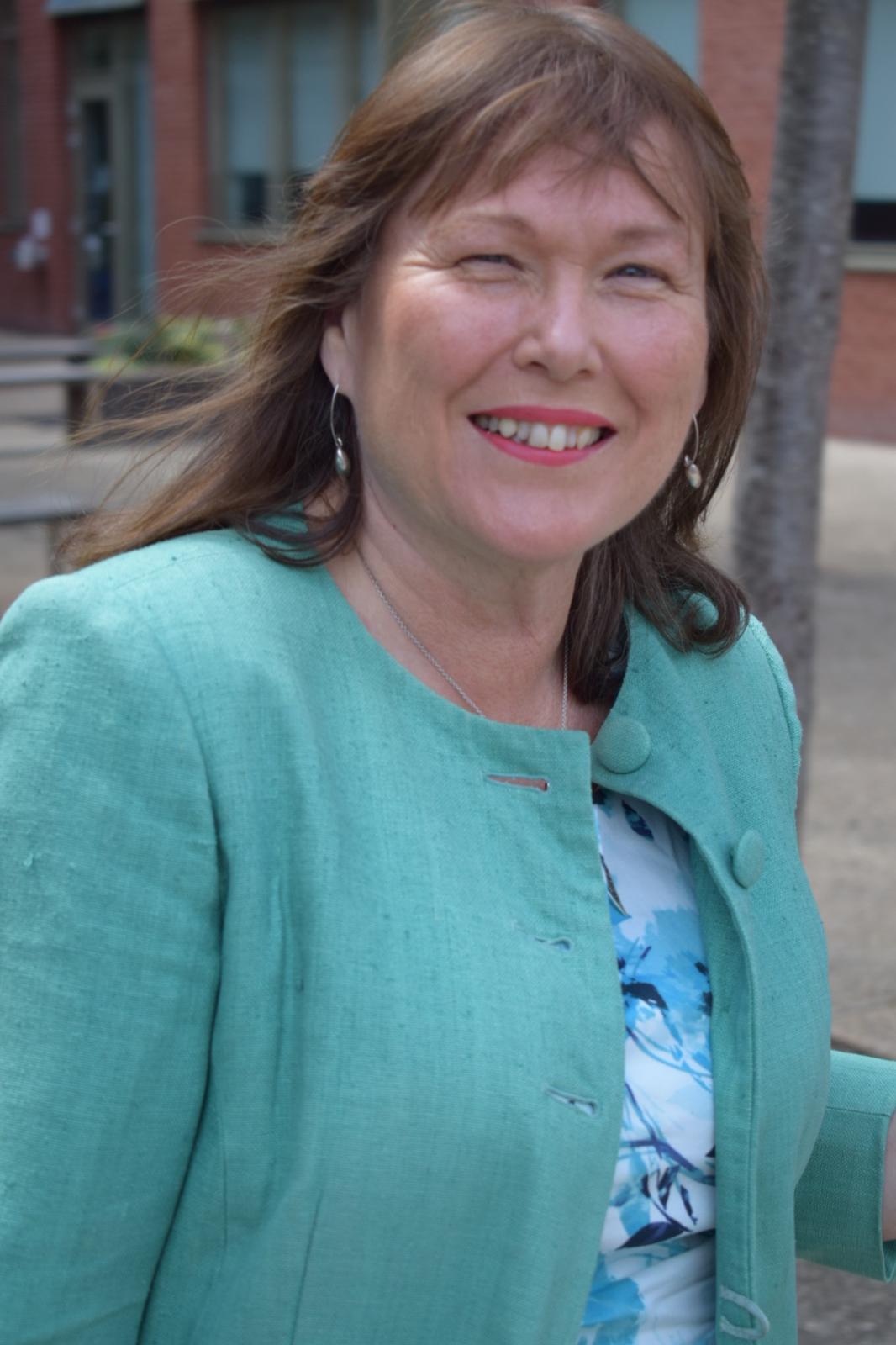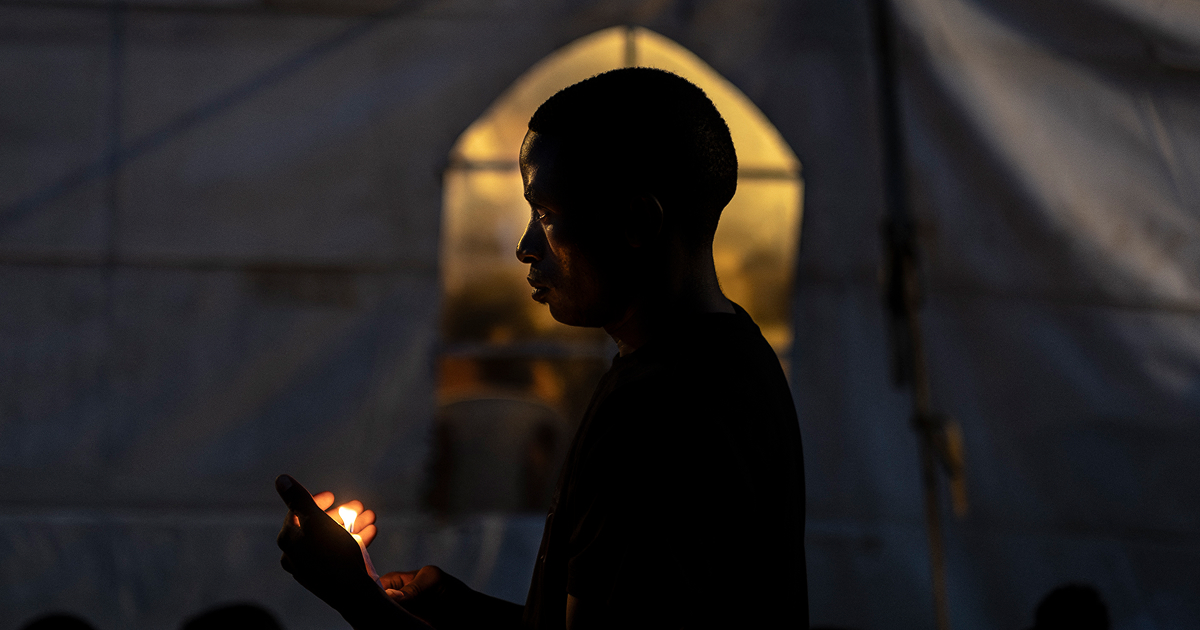Few people have made a greater impact on Catholic education in the United Kingdom than Jane Heffernan. With almost 25 years of experience in senior leadership positions at Catholic schools, she has served as either headteacher or executive headteacher in all the Catholic secondary schools across the London boroughs of Hackney and Islington, and she has been instrumental in preventing the closure of two of them.
While saving Catholic schools from closure is laudable in itself, it is also crucial for their continuation, as current government legislation prevents new Catholic schools from opening. Without Heffernan’s intervention, thousands of children in London would have been denied access to a Catholic education.
Remarkably, she achieved all of this while raising a family of her own – a balance she acknowledges as challenging, but ultimately enriching and informative.
In 2022, Jane attempted to retire, leaving behind a legacy of success in Catholic education and many protégés now serving as headteachers in Catholic schools across the capital.
Her leaving Mass was celebrated by Cardinal Vincent Nichols, and generations of Catholic educators from across the country came to wish her well.
However, she found it difficult to remain inactive and took on various advisory roles with trusts and dioceses, including becoming a member of the Archdiocese of Westminster’s education committee.
In 2023, when plans were announced to create a network of Catholic schools in East London under the Lux Mundi Catholic Academy Trust, Heffernan was the natural candidate to lead the initiative and agreed to serve as CEO.
Since then, the trust has expanded to include five schools across Hackney and Tower Hamlets, with plans for additional schools to join next academic year. She has more than 3,000 students and 300 qualified teachers in her schools, with the diocesan inspectors deeming all of them good or outstanding.
Despite her busy schedule, Heffernan sat down with the Herald to reflect on Catholic education and share her insights.
CH: You are credited with being instrumental in the survival of Catholic schools in East London. How did that come to be?
JH: When I joined Cardinal Pole in Homerton in 2011, the numbers were falling tremendously. I suppose it started from there. At the time, the local education authority was not especially supportive of Catholic education. I think they would not have been terribly sad had we not survived and reopened as a secular school. I felt the need to protect and promote Catholic education.
By the time I was asked to take over as headteacher at St Aloysius in Highbury, Cardinal Pole was in a different place – a strong place – and I felt we had capacity.
St Aloysius had received a notice to and faced hugely falling numbers as well as financial challenges. That first year in particular was not an easy time, and it took enormous resilience. I think you do have to have a motivation that is more than just a job.
For me, it was a commitment to a faith community – and that is a faith community in its widest sense. Not every child in those schools is from a Catholic background. Many come from other Christian traditions or, indeed, from other faiths. But I think their parents choose those schools because they want their children to attend a school with a faith commitment.
Since then, Paula Whyte, former deputy head at Cardinal Pole, has taken over as headteacher, and it has been remarkable. The school’s results have been transformed.
After that, I moved to Our Lady’s – now All Saints Catholic High School – in Clapton, which was very much focused on finance, as they were in deficit. That has changed since my time there. The idea is that you work and invest your time. There are lots of people greater than myself who talk about what you leave behind. You may never see the outcome, but your work is to lay the foundations.
CH: How do you approach building resilience and integrity within a school community, especially when leading schools that require improvement?
JH: Although you individually have to be resilient, you also have to build a resilient community – you cannot work in isolation. Resilience is sometimes quite a painful process, so you need to have a shared mission: the lives of these young people and their Catholic education.
Whether it is staff, parents, governors or the students, people have to believe in that. So when you announce things – which may not be popular decisions – you know these things are going to happen.
The children are always the ones who make me smile, because they can almost read what’s happening when a school needs improvement.
They say, “Oh Miss, why are you always so ‘extra’?” That makes me laugh, and I think, I’m ‘extra’ because I care about you. Because I want your school to be the best it can be, so you can be the best you can be.
You also need to build integrity with staff and students so that they know you are not going to ask anything of them that you would not ask of yourself. That’s down to the small things. In the canteen, instead of telling a child to clear away the plates, you clear away the plates and ask the child to come and help you. If they see you picking up litter, it is legitimate for you to ask them to do the same.
It’s the same with staff. To hold yourself to high professional expectations regardless of what’s going on is sometimes very hard. It can be a lonely place, particularly when you go to those new schools and you are parachuted in.
CH: What was the motivation behind the Lux Mundi Catholic Academy Trust?
JH: We have come to a point where schools are under threat, in any case, because of falling rolls and financial pressures. But I think Catholic schools in particular have become more vulnerable because of a drift away from the Church.
The diocese had been trying to put in place an academy process for some time and had established a number already, but it hadn’t been able to establish any in East London.
When the idea of Lux Mundi came about, I was delighted to be offered that post, and we spent about a year planning to establish Lux Mundi to work with the local schools in Tower Hamlets and Hackney.
One of the things that is very positive about Lux Mundi is that we’ve got some fantastic heads who are very experienced. We’ve got lots of inspectors – CSI inspectors – and people with lots of different skill sets.
And of course, it is also the vision of Cardinal Vincent Nichols that we are together – a network of schools working with families as a strong unit. That is how we will promote Catholic education. By working together, we will flourish.
For more on the Lux Mundi Catholic Academy Trust, visit luxmundi.co.uk
This article appeared in the February edition of the Catholic Herald. To subscribe to our award-winning, thought-provoking magazine and have independent, high-calibre, counter-cultural and orthodox Catholic journalism delivered to your door anywhere in the world click HERE.
Few people have made a greater impact on Catholic education in the United Kingdom than Jane Heffernan. With almost 25 years of experience in senior leadership positions at Catholic schools, she has served as either headteacher or executive headteacher in all the Catholic secondary schools across the London boroughs of Hackney and Islington, and she has been instrumental in preventing the closure of two of them.
While saving Catholic schools from closure is laudable in itself, it is also crucial for their continuation, as current government legislation prevents new Catholic schools from opening. Without Heffernan’s intervention, thousands of children in London would have been denied access to a Catholic education.
Remarkably, she achieved all of this while raising a family of her own – a balance she acknowledges as challenging, but ultimately enriching and informative.
In 2022, Jane attempted to retire, leaving behind a legacy of success in Catholic education and many protégés now serving as headteachers in Catholic schools across the capital.
Her leaving Mass was celebrated by Cardinal Vincent Nichols, and generations of Catholic educators from across the country came to wish her well.
However, she found it difficult to remain inactive and took on various advisory roles with trusts and dioceses, including becoming a member of the Archdiocese of Westminster’s education committee.
In 2023, when plans were announced to create a network of Catholic schools in East London under the Lux Mundi Catholic Academy Trust, Heffernan was the natural candidate to lead the initiative and agreed to serve as CEO.
Since then, the trust has expanded to include five schools across Hackney and Tower Hamlets, with plans for additional schools to join next academic year. She has more than 3,000 students and 300 qualified teachers in her schools, with the diocesan inspectors deeming all of them good or outstanding.
Despite her busy schedule, Heffernan sat down with the <em>Herald</em> to reflect on Catholic education and share her insights.
<strong>CH:</strong> You are credited with being instrumental in the survival of Catholic schools in East London. How did that come to be?
<strong>JH:</strong> When I joined Cardinal Pole in Homerton in 2011, the numbers were falling tremendously. I suppose it started from there. At the time, the local education authority was not especially supportive of Catholic education. I think they would not have been terribly sad had we not survived and reopened as a secular school. I felt the need to protect and promote Catholic education.
By the time I was asked to take over as headteacher at St Aloysius in Highbury, Cardinal Pole was in a different place – a strong place – and I felt we had capacity.
St Aloysius had received a notice to and faced hugely falling numbers as well as financial challenges. That first year in particular was not an easy time, and it took enormous resilience. I think you do have to have a motivation that is more than just a job.
For me, it was a commitment to a faith community – and that is a faith community in its widest sense. Not every child in those schools is from a Catholic background. Many come from other Christian traditions or, indeed, from other faiths. But I think their parents choose those schools because they want their children to attend a school with a faith commitment.
Since then, Paula Whyte, former deputy head at Cardinal Pole, has taken over as headteacher, and it has been remarkable. The school’s results have been transformed.
After that, I moved to Our Lady’s – now All Saints Catholic High School – in Clapton, which was very much focused on finance, as they were in deficit. That has changed since my time there. The idea is that you work and invest your time. There are lots of people greater than myself who talk about what you leave behind. You may never see the outcome, but your work is to lay the foundations.
<strong>CH:</strong> How do you approach building resilience and integrity within a school community, especially when leading schools that require improvement?
<strong>JH:</strong> Although you individually have to be resilient, you also have to build a resilient community – you cannot work in isolation. Resilience is sometimes quite a painful process, so you need to have a shared mission: the lives of these young people and their Catholic education.
Whether it is staff, parents, governors or the students, people have to believe in that. So when you announce things – which may not be popular decisions – you know these things are going to happen.
The children are always the ones who make me smile, because they can almost read what’s happening when a school needs improvement.
They say, “Oh Miss, why are you always so ‘extra’?” That makes me laugh, and I think, I’m ‘extra’ because I care about you. Because I want your school to be the best it can be, so you can be the best you can be.
You also need to build integrity with staff and students so that they know you are not going to ask anything of them that you would not ask of yourself. That’s down to the small things. In the canteen, instead of telling a child to clear away the plates, you clear away the plates and ask the child to come and help you. If they see you picking up litter, it is legitimate for you to ask them to do the same.
It’s the same with staff. To hold yourself to high professional expectations regardless of what’s going on is sometimes very hard. It can be a lonely place, particularly when you go to those new schools and you are parachuted in.
<strong>CH:</strong> What was the motivation behind the Lux Mundi Catholic Academy Trust?
<strong>JH:</strong> We have come to a point where schools are under threat, in any case, because of falling rolls [fewer students entering secondary education] and financial pressures. But I think Catholic schools in particular have become more vulnerable because of a drift away from the Church.
The diocese had been trying to put in place an academy process for some time and had established a number already, but it hadn’t been able to establish any in East London.
When the idea of Lux Mundi came about, I was delighted to be offered that post, and we spent about a year planning to establish Lux Mundi to work with the local schools in Tower Hamlets and Hackney.
One of the things that is very positive about Lux Mundi is that we’ve got some fantastic heads who are very experienced. We’ve got lots of inspectors – CSI inspectors – and people with lots of different skill sets.
And of course, it is also the vision of Cardinal Vincent Nichols that we are together – a network of schools working with families as a strong unit. That is how we will promote Catholic education. By working together, we will flourish.
<em>For more on the Lux Mundi Catholic Academy Trust, visit luxmundi.co.uk</em>
<strong>This article appeared in the February edition of the <em>Catholic Herald</em>. To subscribe to our award-winning, thought-provoking magazine and have independent, high-calibre, counter-cultural and orthodox Catholic journalism delivered to your door anywhere in the world click <a href="https://catholicherald.co.uk/subscribe/?swcfpc=1"><mark>HERE</mark></a></strong>.


















